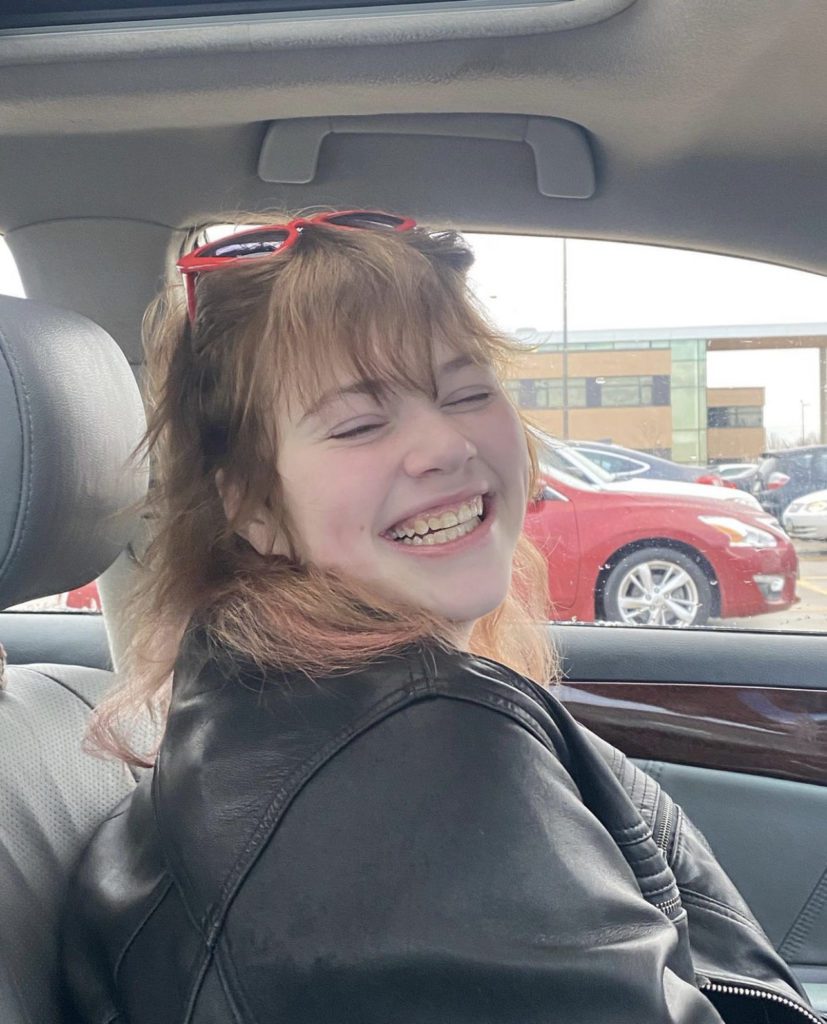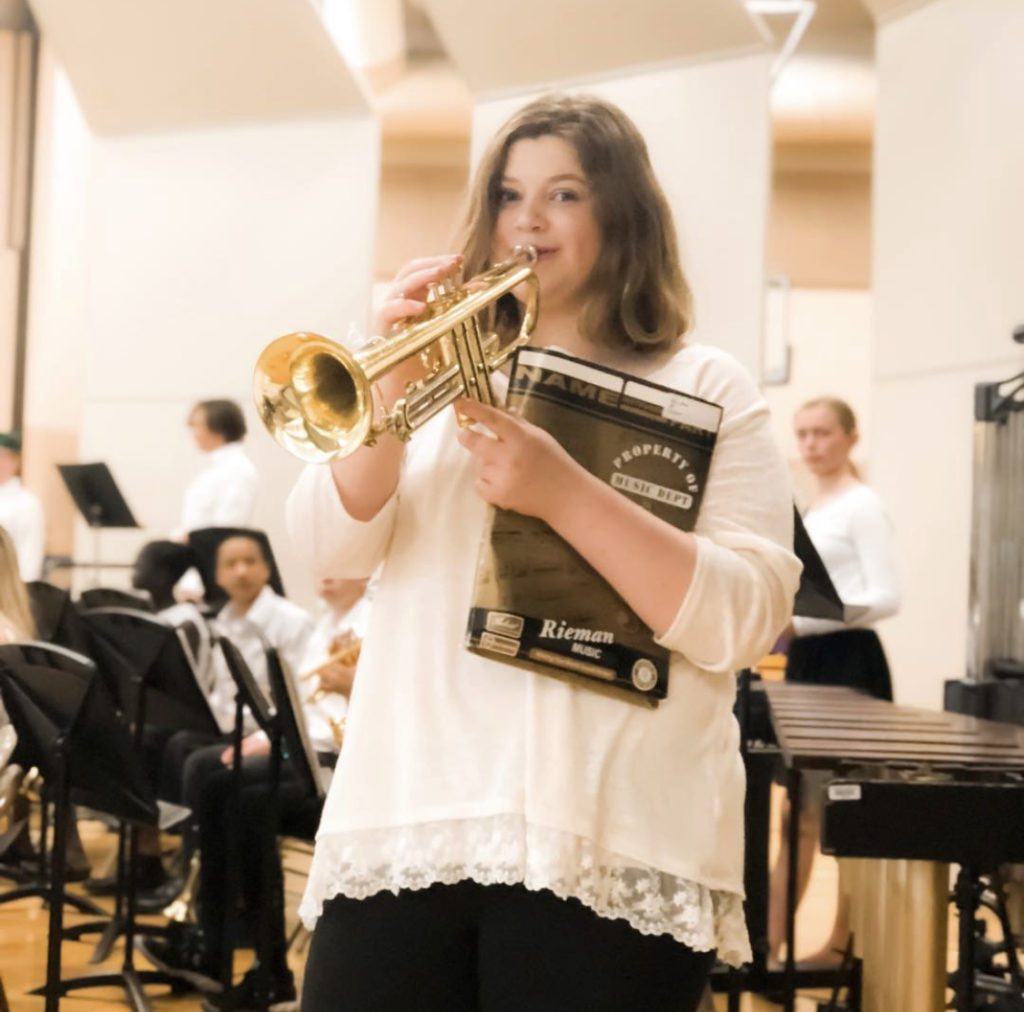Iowa - The heart of the matter
the hcm act will help identify Cardiac Health issues in patients with a spectrum of Diseases including Hypertrophic cardiomyopathy
Sudden cardiac death (SCD) is a sudden, unexpected death caused by loss of heart function (sudden cardiac arrest). Sudden cardiac death is the largest cause of natural death in the United States, causing about 325,000 adult deaths in the United States each year.
Multiple conditions and risks can make children prone to sudden cardiac arrest (SCA) or sudden cardiac death (SCD) as well as other complications of heart disease. To date, the focus has mainly been only on screening student-athletes.

Jillian Blair



By the numbers:
One of the disorders in the spectrum is Hypertrophic Cardiomyopathy which is often misdiagnosed or worse yet - overlooked until it is too late.
But with more attention focused on this problem, we can improve the diagnosis delay.
There are close to 2,000 Iowa State constituents potentially affected with cardiac disorders per EACH State Senator’s District, with over 300 being Hypertrophic Cardiomyopathy*.
There are up to 1,000 constituents potentially affected with cardiac disorders per EACH House of Representative’s District in Iowa with over 150 being Hypertrophic Cardiomyopathy.
The HCMA has many members from Iowa, like Jillian's family featured on this page. They share a deep understanding of the benefits of childhood screening and early diagnosis.
To view the full report on the prevalence of cardiac disorders in the state of Iowa: Click here
Please, listen to our patient stories, and take action to support the HCM Act. Draft legislation is available for review: https://4hcm.org/health-cardiac-monitoring-act/
UPDATE: A resolution in Iowa was adopted on February 15, 2023, by the Iowa House of Representatives, designating the fourth Wednesday in February annually as Hypertrophic Cardiomyopathy Awareness Day. Thank you, Representatives Gary Mohr, Joel Fry, Ann Meyer, Beth Wessel-Kroschell, Jacob Bossman, and Shannon Latham, for your support!
Hear from an Iowa State Constituent - Help save us now:
How a doctor knowing the right questions to ask could have saved Jillian's life:
A Message from Lisa Salberg, HCMA Founder and CEO -
In the 27 years of the Hypertrophic Cardiomyopathy Association's efforts to support and advocate for the HCM community, we have come across many stories from far too many families that are heartbreaking. We can use these stories to educate and spread awareness in an effort to stop this cycle of tragedy. When a young person is lost to HCM, my first question is “what could be done to stop this from happening again?”. Just as heart month began this year, I had a conversation with a grieving mother, Amy Blair. Her daughter Jillian passed away from a sudden cardiac arrest (SCA) on April 21, 2022. She was 17 years old. It shattered my heart to hear the details of the timeline of this family and their lost opportunities to get to care in time. In memory of Jillian, or Jill to her friends and family, we are going to illustrate clearly how the Healthy Cardiac Monitoring Act can help healthcare providers intervene in time to help improve and possibly save the lives of those with HCM and other genetic forms of heart disease.
Questions asked by Lisa Salberg (HCMA) - To Amy Blair, Jillian’s mother.
Amy, please tell us about your daughter Jillian.
My daughter, Jillian Blair, was a seventeen-year-old junior attending Johnston High School in Johnston, Iowa. She had a Bohemian Chic sense of style, enjoying fashion design, Interior design, graphic design, and photography. She loved being innovative with her own style, often sporting new hairstyle trends and finding her signature look using makeup and retro clothing experiments.
When Jillian was asked about her design aesthetic, she would reply, "It's a cross between David Bowie and an old man."
Jillian was an avid lover of music. She owned many vinyls and believed in listening to an album from the first song to the last, as that was how the artists designed their music to be heard. She believed there were stories to be found everywhere. Jillian was a fan of many artists, including Nirvana, Bob Marley, and Bjork, to name a few. She was also a big fan of Harry Styles. Jillian saw him in concert as a gift for her 17th birthday and was looking forward to his newest album release, "Harry's House." It came out just a week before she died, she didn't get to hear the entire album. As a tribute, Jillian's friends brought it to her grave site and had a picnic, and played the whole album for her.
When was the first time anyone mentioned Jillian's heart to you?
On February 16, 2022, Jillian’s doctor heard a heart murmur during her regular well-child examination. This was something that had never been heard before. Jillian had last been to the doctor in June 2021, and there was no note of hearing anything abnormal.
What happened next after Jillian's doctor detected her heart murmur?
Jillian was referred to a pediatric cardiology center in Des Moines, Iowa. Her appointment was on March 15, 2022. There she had an echo, EKG, and X-Ray of her heart. Based on the results, a hospital cardiologist diagnosed Jillian with severe Hypertrophic Cardiomyopathy (HCM) with Obstruction and possible Aortic Stenosis. Jillian's septum measured 4.2cm, her left ventricular wall 3.4cm, and her resting gradient was 61. (Normal heart wall measurements are 1.1cm and should be equal throughout the heart, and there should be no gradient, which is a measurement of pressure in the ventricles when the blood is impeded from leaving the heart.)
Have you ever heard of Hypertrophic Cardiomyopathy before Jillian's diagnosis?
Hypertrophic Cardiomyopathy; yes, I had heard those words before, not only in my nursing profession but also because other family members had been diagnosed with HCM.
When do you recall hearing about HCM for the first time in your family?
My nephew, Dan, was diagnosed with HCM in 2005 at 14. He had a septal myectomy, and a defibrillator was placed. Looking back, we were never told to be screened as an entire family. In fact, one doctor said it was only a male-to-male inherited gene, which we now know was incorrect information. We were not counseled to have family members screened at all.
After Jillian's diagnosis, what were the next steps recommended by her cardiologist?
They recommended that Jillian have a Cardiac MRI and another Echo. This was done on March 28, 2022. We met with a cardiologist there who wanted to wait for all the test results, including genetic testing, before deciding on the next steps.
What was going on with Jillian during this "wait" time?
Over the next few weeks, Jillian had symptoms of dizziness and near syncope. Her MRI results showed her LGE scar in the heart, which was at 4.5%. We were still waiting to see what the next steps would be.
When did Jillian's cardiologist next contact you?
On April 21, 2022, a nurse called to give us Jillian's genetic test results. Her genetic testing confirmed that she had a disease-causing gene mutation in Myosin Binding Protein C, MYBPC3. When I inquired about Jillian's need for therapies, the nurse stated that the cardiologist would contact us next week.
April 21, 2022, was a horrible day; your life changed forever; what happened?
An hour and a half after the call from the nurse, Jillian came home from school. I told her about the genetic test results and that we would seek a second opinion at the University of Iowa (an HCMA-recognized Center of Excellence). She nodded in agreement. She then jogged up the stairs to her bedroom to get ready for work, and I went outside to do some yard work. I noticed her car was still in the driveway and thought this was unusual, so I went back into the house to see what was delaying her. I found her collapsed on the floor near her bed. It had been only five-ten minutes since I had last seen her. I immediately started CPR and called 911.
Jillian's windows were open, and the neighbor across the street heard me screaming. She is an ER nurse who happens to sell Automatic external defibrillators (AED). She grabbed her defibrillator, and within one minute of finding Jillian, she had an AED in her. She was shocked three times before the ambulance got there. After the first two shocks, her heart tried to recover but went back into VFIB and finally asystole, from which she never recovered.
At 3:30 pm on April 21, 2022, our daughter Jillian was jogging up our stairway with a smile.
At 5:09 pm, she was declared dead.
In the blink of an eye, our girl was gone.
I am genuinely sorry for your loss. When you originally shared your daughter's story, I felt your determination and commend your desire to help other families avoid the tragedy your family has endured. How has your experience brought home the importance of knowing and understanding your family's heart health history?
There were "red flags" all over our family. As I said before, my nephew Dan had his first myectomy for HCM in 2005. In 2015, my brother John (Dan's Father), who also had HCM, died from open heart surgery complications. His surgery was performed in a local hospital. In 2017 I was diagnosed with atrial fibrillation (afib or AF). I asked my doctor if this could be related to my significant family history of HCM, and he almost laughed at me and answered, "no, it's just afib." My father and my sister, Sarah, were also diagnosed with afib. There were miscommunications and a general lack of appreciation for HCM in our family, including, as I said before, being told incorrectly by one medical professional that it was only a male-to-male inherited gene. We were never given an accurate understanding of what HCM could mean to our entire family.
All those years of us asking the right questions and getting the wrong answers gave us a false sense of confidence that cost us dearly. What a difference it would have made if healthcare providers had asked the right questions, received the proper training, and knew how to manage our family better. If we had known even just a year earlier, we would have had the chance to implant a defibrillator in time for Jillian. The risk factors for sudden cardiac arrest in HCM indicate she had two risk factors, including massive hypertrophy (3.0 or greater) and a family history of appropriate ICD discharge a surrogate for sudden cardiac arrest). Sadly we did not have the time to make the decisions necessary to protect my daughter. Jillian having an ICD could have meant she would have experienced an appropriate ICD therapy on April 21, 2022, which would likely have saved her life.
Has Jillian's passing encouraged other family members to be evaluated for HCM?
Since Jillian's passing, our other two daughters have been genetically tested for HCM; I have also been tested, and so have my sisters. Those who are gene positive have had their kids tested. I have thirty-one cousins on my dad's side; twenty-eight have been tested, and eight were positive.
You have shared that you've lost several family members to HCM over the years. In 2022, in addition to your daughter, Jillian, you also lost another family member to HCM. Tell me about your sister, Cathy.
After Jillian died, several family members had genetic testing done. My sister, Cathy, discovered in June of 2022 that she carried the same gene mutation as Jillian. In August of 2022, after additional testing, Cathy was diagnosed with severe Hypertrophic Cardiomyopathy with obstruction. At the time of her diagnosis, she was still grieving the loss of her niece, and she was recovering from a mobility issue with her leg. On September 22, 2022, Cathy collapsed at home and died. She was 68 years old. It was such a brief time from Cathy's diagnosis to her passing. Cathy died from Hypertrophic Cardiomyopathy, but I tell people she died of a broken heart because when we lost Jillian, it changed all of our lives forever, as does every family who loses someone to this disease. Losing someone so young affects the entire family's mind, heart, and soul.
